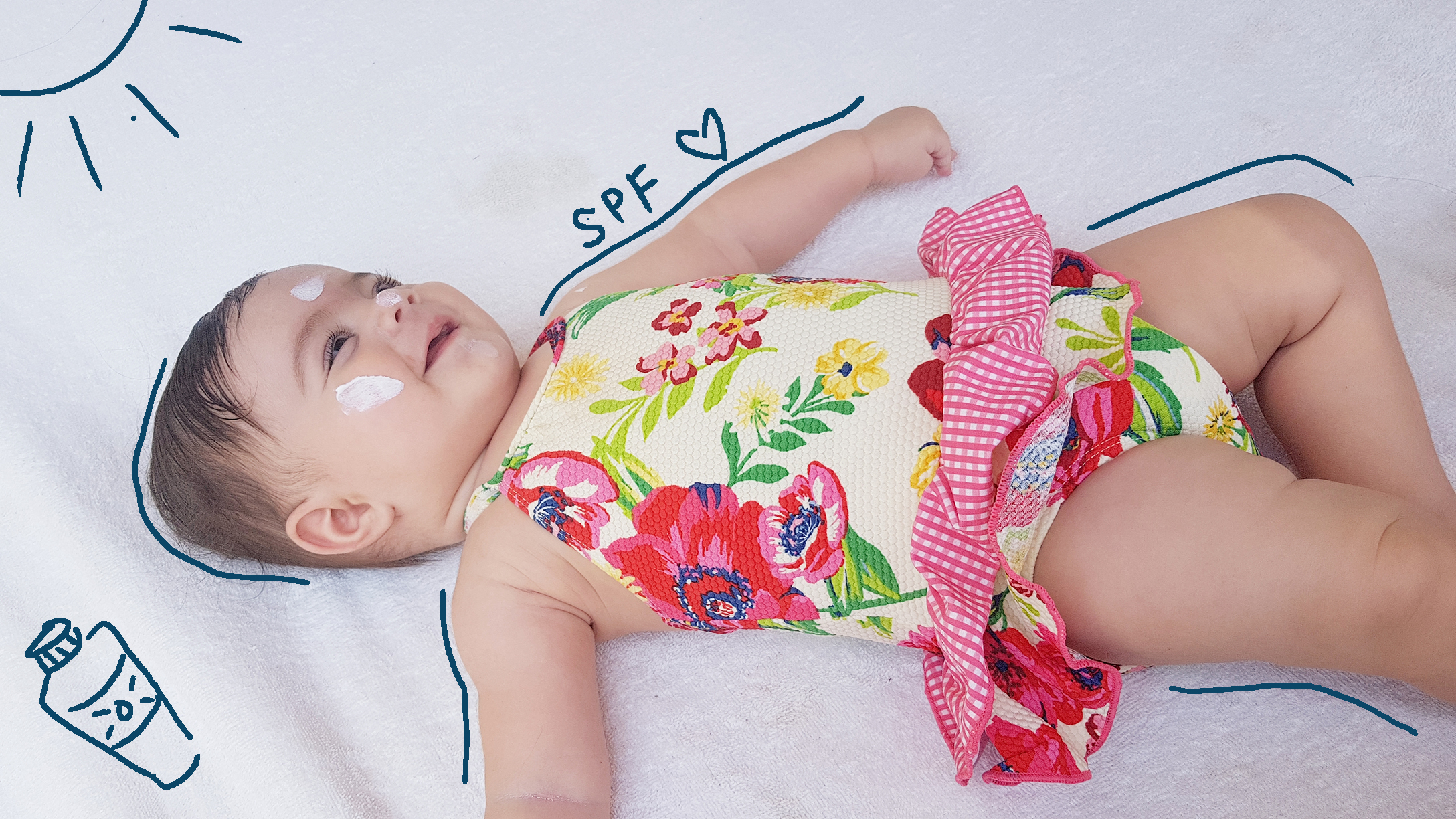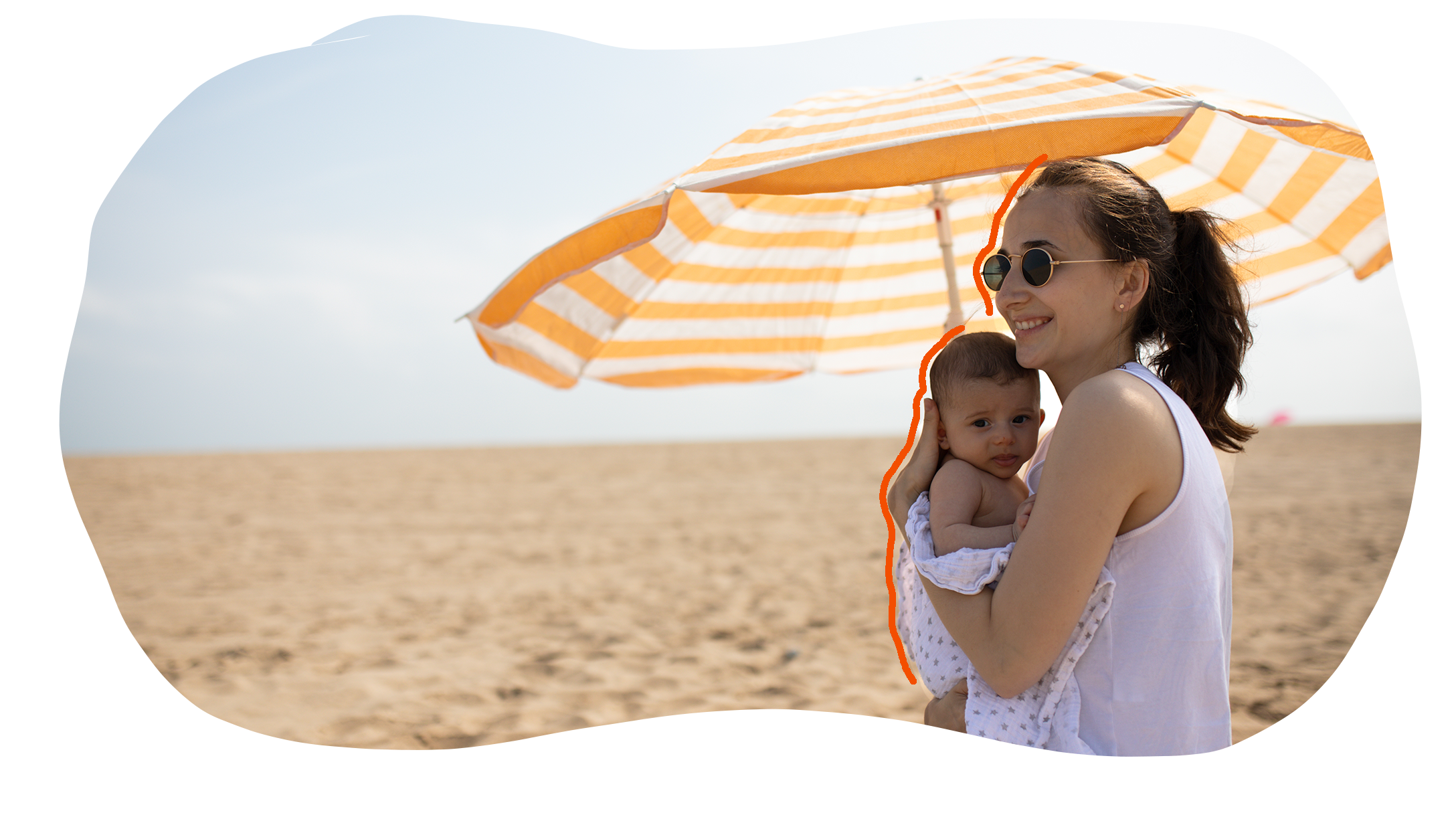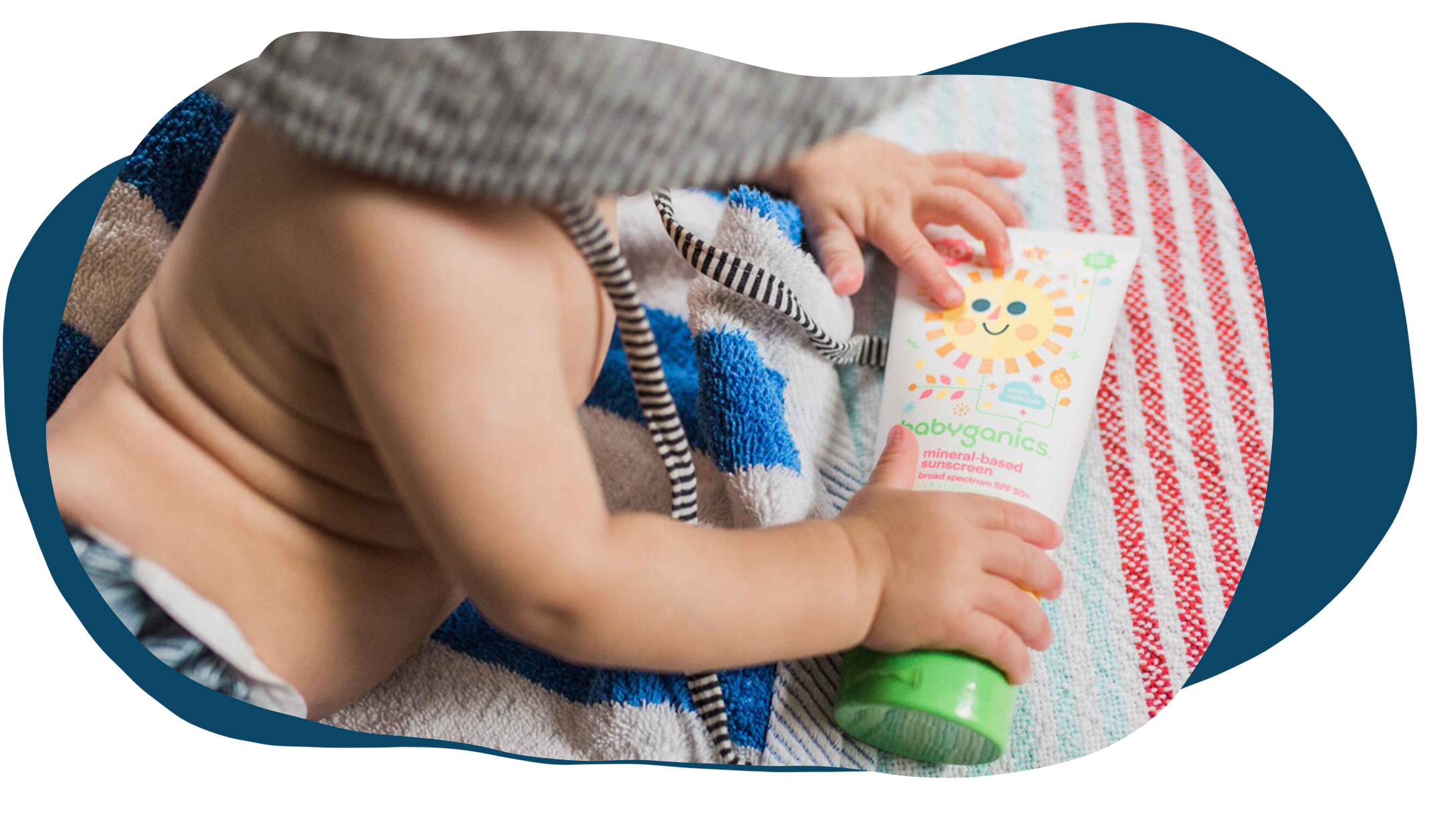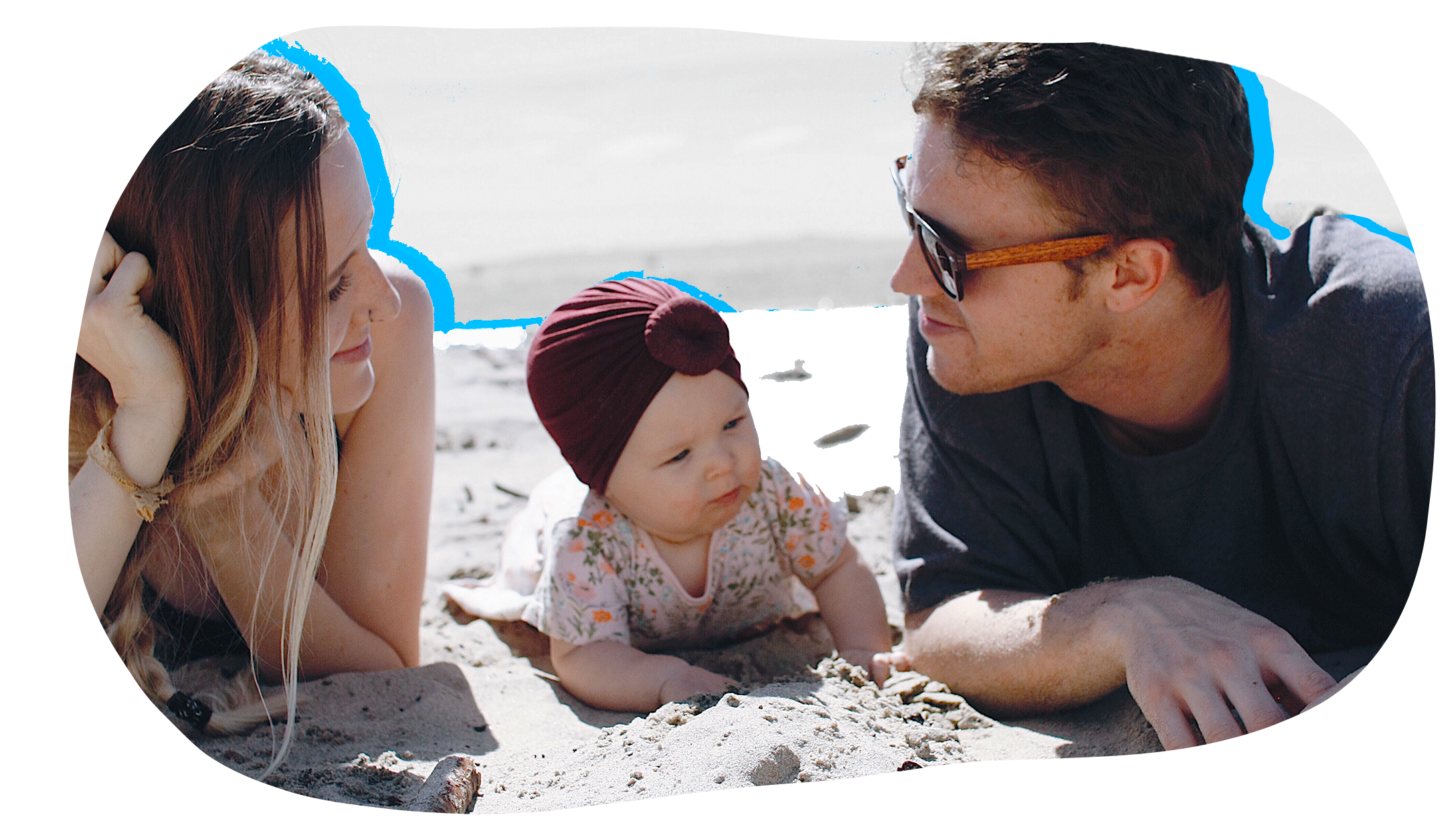
In This Article
As teenagers, many of us didn’t think twice about getting in a tanning booth to bronze up before a vacation or school dance. As parents, we’re way more cautious about our babies’ skin. On sunny days, protecting them from harmful ultraviolet (UV) rays is one of the main priorities on most new moms’ minds. It’s counterintuitive, then, to think that spreading sunscreen all over babies might not be the way to go. Here’s what the experts say about keeping infant skin safe from both the sun and from the chemicals in sunscreen.
Sunscreen for babies under 6 months old

Getty Images
According to the US Food & Drug Administration (FDA), instead of getting slathered in sunblock, babies under the age of 6 months should stay out of the sun altogether — especially during the hours of 10 a.m. to 2 p.m., when UV rays are most intense.
“Babies’ skin is less mature compared to adults, and infants have a higher surface-area to body-weight ratio compared to older children and adults,” Dr. Hari Cheryl Sachs, an FDA pediatrician, said on the organization’s website. “Both these factors mean that an infant’s exposure to the chemicals in sunscreens may be much greater, increasing the risk of side effects from the sunscreen.”
For some parents, though, keeping a baby out of the sun entirely just isn’t practical. This is the case for new mom Rebecca Kruge, who gave birth to her 5-month-old earlier this year. In this situation, the FDA recommends talking to your pediatrician, which is just what she did.
“Our doctor said that if we’re going to be outside, protection is better than not putting on sunscreen. The benefits outweigh the risks. Usually we put it on when he’s in the sun for an extended period of time,” Kruge said. “I’m pretty obsessive about what goes through and on his body, so I bought an organic sunscreen for sensitive skin that only has zinc oxide.”
Sunscreen for babies over 6 months old

Twenty20
For babies over 6 months old, Kruge has the right idea: Experts say chemical-free is the way to go. As Adarsh Vijay Mudgil, medical director of Mudgil Dermatology in New York City, explained to Allure, baby sunscreens “should only contain physical blockers zinc oxide and/or titanium dioxide as their active ingredients – chemical components, like avobenzone, should be avoided.” This will decrease the likelihood of any irritation to your baby’s skin or eyes.
Look for an infant sunscreen formulathat’s at least SPF 30 and is broad spectrum, which means it protects against both types of harmful ways: UVA and UVB. Reapply on your baby at least every two hours — more, if they’re in the water at all. To be super safe, do a patch test on your baby’s skin with the sunscreen you plan to use before applying it to their entire body. This means rubbing it onto a small area of skin to make sure it doesn’t cause any irritation.
General sun safety

Twenty20
Whether your baby is under 6 months or over, it’s essential to take basic sun precautions while they’re outside. Even if your baby is wearing sunscreen, the American Academy of Pediatrics still recommends keeping them out of the sun as much as possible. This means that umbrellas, trees, and anything else that can provide some shade are your friends. Hats with wide brims are also great for shade, as they protect the especially sensitive skin on your baby’s face, ears, and the back of their neck. Sunglasses are also a good idea.
Anne Young, mom to a 4-year-old boy and a 10-week-old girl, has taken this advice to heart: “I put a sun hat on my baby, and I dress her in long sleeves and long pants. I usually have a muslin blanket handy to cover her as well. I do worry a little about overheating, so I choose clothes that are lightweight cotton.”
If for any reason your little one gets a sunburn that causes blisters, pain, or a fever, get in touch with your pediatrician.







